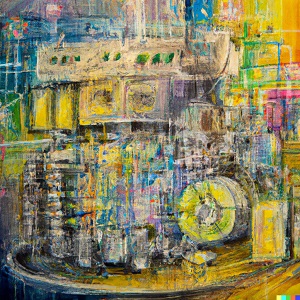Acceleration of CFD calculations using Reduced Order Modeling. Application in CVD processes
 Speaker: Pavlos Gkinis (National Technical University of Athens, Grece)
Speaker: Pavlos Gkinis (National Technical University of Athens, Grece)
Title: Acceleration of CFD calculations using Reduced Order Modeling. Application in CVD processes
Time: Wednesday, 2021.04.28, 10:00 a.m. (CET)
Place: fully virtual (contact Dr. Jakub Lengiewicz to register)
Format: 30 min. presentation + 30 min. discussion
Abstract: A computational data-driven framework for the development of Reduced Order Models (ROMs) with application to Chemical Vapor Deposition (CVD) reactors is presented.[1] Describing and predicting the behavior of CVD reactors requires complex high-fidelity Computational Fluid Dynamics (CFD) models with millions of unknowns, the solution of which has a significantly high computational cost, making it imperative to develop ROMs. The reduction of the dimension of the problem is based on the combination of the Method of Snapshots (MoS) which is a variant of Proper Orthogonal Decomposition (POD) and properly trained Artificial Neural Networks (ANN). Snapshots are the sequential states of the reactor during the transition from one steady state to another after a certain disturbance on one of the controlled parameters. These are computed by a simplified, low-fidelity and time-dependent CFD model without chemical reactions. The aim is to develop a ROM with satisfactory accuracy, based on low-fidelity data obtained at low computational cost. The snapshots are used to find the dominant eigenvectors that span the solution space, as well as to train neural networks to quickly predict the time-dependent coefficients of the ROM. The model prediction is certainly not satisfactory due to the low-fidelity data used in the development of the ROM, but it is sufficient that when fed into a complete and large-scale process model, the solution convergence occurs in significantly less time. In conclusion, a remarkable acceleration of calculations is achieved, that reduces the computational cost of parametric analysis and the general study of the prevailing physical[2] and chemical phenomena[3] of the process.
Additional material:
[1] P. A. Gkinis, E. D. Koronaki, A. Skouteris, I. G. Aviziotis, A. G. Boudouvis. Chemical Engineering Science 199 (2019) 371-380.
[2] E. D. Koronaki, P. A. Gkinis, L. Beex, S. P. A. Bordas, C. Theodoropoulos, A. G Boudouvis. Comput. & Chem. Eng. 121 (2019) 148-157.
[3] R. Spencer, P. A. Gkinis, E. D. Koronaki, D. I. Gerogiorgis, S. P. A. Bordas, A. G. Boudouvis, Comput. & Chem. Eng. 149 (2021) 107289.